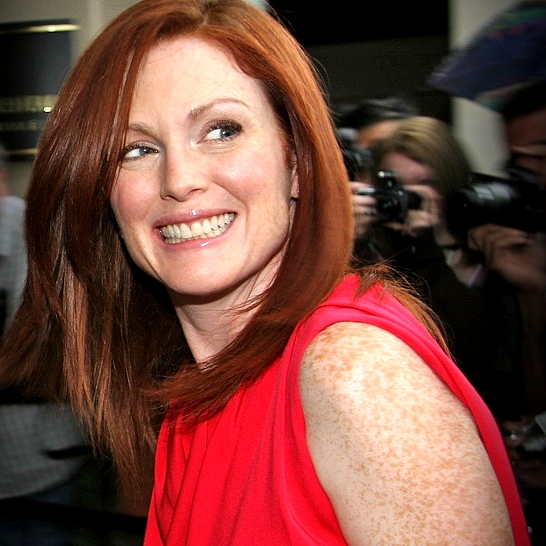
In the midst of all the film industry self-aggrandizing and back-slapping, you may have missed a gentle but powerful word spoken from the winner’s podium at last night’s Oscars. This word came from Julianne Moore, winner of the Best Actress category for a film about a sufferer of early-onset Alzheimer’s. In her acceptance speech, she gave just a few sentences that I think beautifully sum up one of the great purposes film can accomplish for humanity.
So many people with this disease feel isolated and marginalized. One of the wonderful things about movies is that it makes us feel seen–and not alone. And people with Alzheimer’s deserve to be seen so that we can find a cure.
I love this acknowledgment of film in service of one’s neighbor. There are many invisible people in our society, and film can open our eyes to deeper empathy and love. It can enable us to see people who are invisible. It can make people less scary and more human to us. It can help us to embrace our neighbor.
Who are the people that film enables us to see? A grumpy old man in Nebraska? A conflicted gay cowboy in Brokeback Mountain? A black young man, perceived as threat by the police, in Fruitvale Station? A imperfect pastor who is trying to serve faithfully while battling his own demons in The Overnighters? A young Jewish Orthodox woman who has been abandoned to despair by the misogynistic tendencies of her community in Kadosh? The experience of the African-American community in the South during the Civil Rights era in Selma?
In film that dares to be honest and real, we can find empathy for our neighbor.
What film has opened your eyes to empathy and understanding of someone very different? What did you learn?
QUICK EDIT: Go check out Ryan Hamm’s great reflection on how the TV show, The Americans, inspires him to empathy even for mortal enemies. In a time of war, terrorism, and violence, this word seems particularly relevant.
——————-
Community discussion guidelines:
Because this is a Christian blog, the things I’m talking about will obviously be topics that people feel strongly about in one direction or another. Please keep in mind that this is a place for substantive, respectful conversation. All perspectives are welcome to discuss here as long as all can treat each other with kindness and respect. Please ignore trolls, refuse to engage in personal attacks, and observe the comment policy listed on the right side of the page. Comments that violate these guidelines may be deleted. For those who clearly violate these policies repeatedly, my policy is to issue a warning which, if not regarded, may lead to blacklisting. This is not about censorship, but about creating a healthy, respectful environment for discussion.
P.S. Please also note that I am not a scientist, but a person with expertise in theology and the arts. While I am very interested in the relationship between science and faith, I do not believe I personally will be able to adequately address the many questions that inevitably come up related to science and religion. I encourage you to seek out the writings of theistic or Christian scientists to help with those discussions.
———————-
Header photo source: gdcgraphics [CC BY-SA 2.0], via Wikimedia Commons











